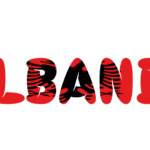
The government maintained victim protection efforts. The government and NGOs identified 95 official and potential victims (105 in 2017). The government could not provide details about the type of exploitation for all official and potential victims but at least 36 were subjected to sex trafficking, 25 to forced labor, and 27 to forced begging.
The government maintained a multi-disciplinary national referral mechanism (NRM) and updated SOPs for identifying and referring victims to services. First responders referred potential victims to law enforcement and state social services who conducted joint interviews to determine official victim status. The law provided equal services for both potential and officially recognized victims. NGOs, with the support of the government, maintained mobile victim identification units consisting of social workers and police in three regions, but the units’ sustainability was uncertain due to the lack of permanent staff, formalization, and resources. Experts reported police did not participate consistently in the mobile victim identification units despite signing a memorandum of understanding that formalized their participation.
Observers continued to report police did not consistently screen individuals for potential involvement in prostitution during raids and investigations on commercial sex establishments and the Labor Inspectorate lacked the training to identify victims of forced labor. Similarly, identification efforts for forced begging remained inadequate, particularly among unaccompanied children, street children, and children crossing borders for begging. The government operated one specialized shelter and supported three specialized NGO-run shelters. Funding for NGO-run shelters steadily increased over the past four years; however, continued funding delays hindered shelter operations and the government decentralized funding mechanisms for all social programs to municipal governments starting in 2019.
Municipality grants prioritized NGOs providing local assistance rather than the national scope needed for trafficking shelters, and experts alleged solicitation and bidding procedures at the municipal level were rife with nepotism and corruption. NGOrun shelters operated under financial constraints and relied on outside sources for operating costs.
The government provided free health care but access to education for child victims was inadequate. For example, the Ministry of Health and Social Protection did not approve funds for the government-run shelter to hire a part-time teacher for victims unable to attend school.
Observers reported professional staff and good quality of care at the shelters in the NCATS. Experts reported first responders referred some individuals who were not trafficking victims to the government-run shelter, including individuals with mental health issues, migrants, and victims of other crimes. Foreign victims had access to the same services as domestic victims and the law provided foreign victims a three-month reflection period with temporary residency status and authorization to work for up to two years.
The government granted or renewed residency to seven foreign victims. Unlike some previous years, the government did not knowingly penalize victims, but may have penalized some trafficking victims due to inadequate identification efforts. Five victims cooperated with law enforcement in investigations and prosecutions (23 in 2017); however, the government did not consistently apply a victim-centered approach to investigations and prosecutions. Law enforcement did not consistently offer sufficient security and support, and victims and their families received threats during court proceedings. Victims who testified against traffickers had access to the witness protection program; none participated in the program.
Local police improved implementation of childspecific procedures, including consistently involving social workers and psychologists when taking official statements from children. The government issued implementing legislation on providing free legal aid and funded victim coordinators in every prosecution office starting in 2019; prosecution offices hired five victim coordinators. Victims could obtain restitution from the government or file civil suits against traffickers; no victims have received restitution.
The law provided repatriation assistance to Albanian citizen victims identified abroad; authorities assisted in the voluntary repatriation of three Albanian victims from Germany, Portugal, and the UK. The government also repatriated foreign victims, including one from Kosovo and one from North Macedonia.
Adapted from TIP 2019 by the U.S. Department of State

